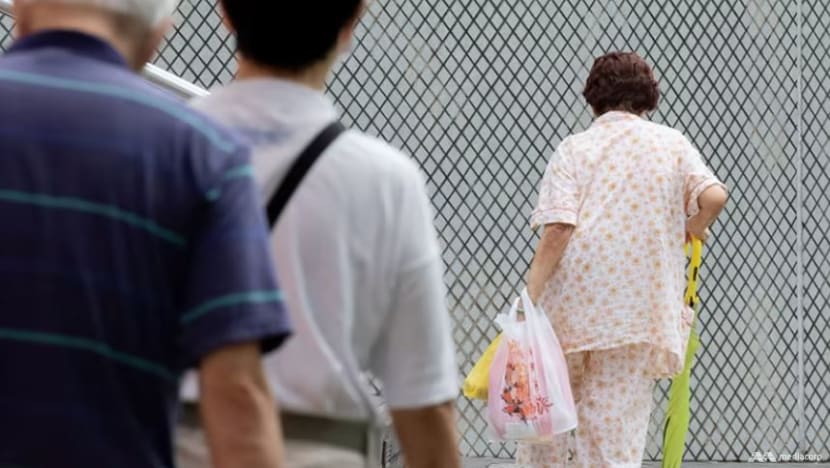Flexible work arrangements, paid leave among items on caregivers’ wishlists
In a survey that sought to find out what would be most helpful for employees who shoulder caregiving responsibilities, flexi-work arrangements came out tops.

The elderly prefer handling cash as electronic means are too complicated for them, with the rise of scams further impeding their adoption among this group. (Photo: TODAY/Ili Nadhira Mansor)
SINGAPORE: Mr Edward Lee spent nearly 40 years as an accountant before leaving the workforce a decade ago to focus on taking care of his mother-in-law who suffers from dementia.
Then, Mr Lee was holding a senior position at his workplace.
“I was working during this period (when I was taking care of her) and it was difficult to toggle between caregiving and … looking after the company’s affairs,” he told CNA, adding that his responsibilities were heavy.
“Taking time off would mean neglecting or reducing my ability to fulfil those responsibilities. So I would have to work overtime, even late at night, or even on weekends to make up for it,” he added.
On the caregiving front, he said it is not easy to look after dementia patients, pointing out their behaviours often change and that it takes time to adapt to an adult sometimes acting like a toddler.
Firms need to lend support to staff who are also caregivers, he said.
“The company will have to understand. Communication and reaching an understanding is very important,” he said.
NEED FOR FLEXIBLE WORK ARRANGEMENTS
To help workers like Mr Lee, the labour movement is pushing for legislation mandating paid caregiving leave and for employers to provide more flexible work arrangements.
These initiatives were among the recommendations the National Trades Union Congress (NTUC) made following a year of engaging the public as part of #EveryWorkerMatters Conversations.
In a survey of 1,000 caregivers that sought to find out what would be most helpful for employees who shoulder caregiving responsibilities, flexi-work arrangements came out tops, with 85 per cent of respondents preferring them.
Releasing the results of the poll on Wednesday (Sep 20), NTUC secretary-general Ng Chee Meng said flexible work arrangements would be a win-win solution for employers as well.
“For the employers, (it means) retaining key experienced staff in a very labour-short Singapore. And for the workers, (it means) having a livelihood and also the space to do their filial responsibilities,” he said.
“If we can push and scale flexible work arrangements, I think many caregivers will appreciate this flexibility. It can be through job redesign, it can be through flexible arrangements on a case by case basis.”
THE BENEFITS OF CAREGIVING LEAVE
Mr Ng said that in NTUC’s conversations with workers, there were requests for some form of paid leave, so that employees can have the assurance that when there are unforeseen circumstances, they can take leave to, for instance, take their parents to the hospital.
As the population ages rapidly, the labour movement wants to see all workers get this benefit.
Related:
Speaking to CNA938’s Asia First on Thursday, Ms Yeo Wan Ling, director of NTUC’s Women and Family Unit and U SME, said that beyond pushing for such leave to be mandatory, definition of who it extends to is important.
“The constitution of what is a family is changing (in Singapore). We have a lot of people who choose to be single, who choose not to have kids,” she said, adding such leave could also include caring for an aged aunt, for instance.
She noted that leave is important, but that alone may not be a sustainable solution for caregivers.
“How much leave are you going to be asking to take? And at a given point, it will become unsustainable both for the company as well as the careers of the workers,” she said.
NTUC said that last year, three in 10 companies offered the benefit, twice as many as compared to a decade ago.
Besides such arrangements and benefits, more than half of the survey respondents said financial support such as medical or health insurance, or subsidies, will help them.



















